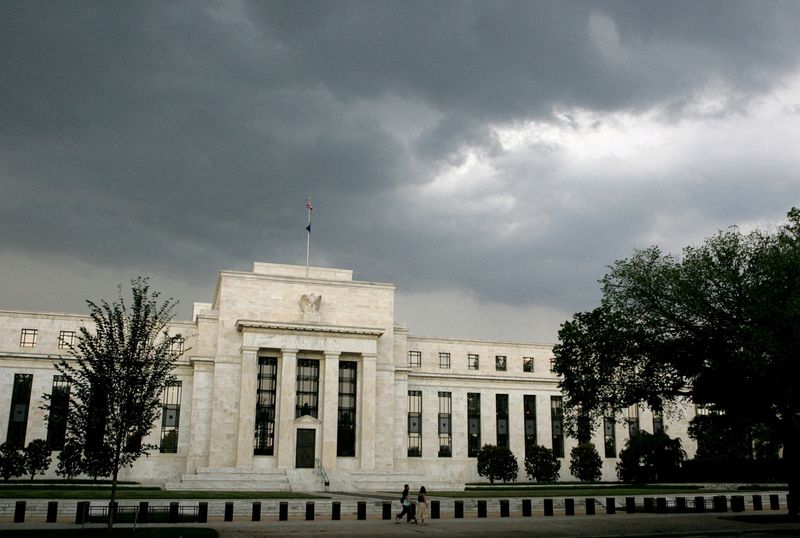Written by Pete Schroeder
WASHINGTON (Reuters) – Three U.S. financial regulators have resumed work on a long-delayed rulemaking project to make financial companies' executive compensation plans more sensitive to risk.
The rule was jointly proposed by the Federal Deposit Insurance Corporation, the Office of the Comptroller of the Currency, and the Federal Housing Finance Agency, and the agencies announced it would ban incentive-based plans and the collection and forfeiture of paychecks that do not take into account risks.
The new effort is a repeat of a 2016 proposal and the latest in a multiyear effort to implement new rules established as part of the 2010 Dodd-Frank Financial Reform Act. The proposed rules are intended to ensure that financial institution executives are not encouraged to take excessive risks to increase their personal compensation.
“When inappropriate compensation practices involve the largest financial institutions, the negative effects of inappropriate risk-taking can have far-reaching effects on the financial system,” FDIC Chairman Martin Gruenberg said in a statement. , pointed out that inappropriate compensation practices were also one of the issues identified in the bankruptcy. He joined Silicon Valley Bank last year.
The industry was quick to criticize the plan, which would apply to banks with more than $1 billion in assets, while companies with more than $250 billion in assets would face the most stringent requirements. The Banking Policy Research Institute, which represents major banks, rejected the plan in a statement as “purely political.”
Regulators have struggled for years to implement mandatory rules, primarily due to the six agencies: FDIC, OCC, FHFA, National Credit Union Administration, Securities and Exchange Commission, and Federal Reserve System. It is a fact that institutions need to agree to. Regarding the joint proposal.
The agencies said the NCUA plans to adopt the proposal “in the near future,” and the SEC also has it on its rulemaking agenda.
The Fed has also not announced plans to issue this rule. Fed Chairman Jerome Powell said in March that compensation was not the cause of SVB's problems, adding that the U.S. central bank did not intend to complete work on the rule by the end of the year.
“I want to understand the problem that we're trying to solve and see a proposal that addresses that problem,” he said in Congressional testimony.
A Fed spokesperson said Monday that the central bank is committed to working on joint rules with regulators, but that they must be reviewed based on up-to-date information that reflects current industry practices.
If all regulators do not come up with the same proposal, the agency will not be able to formally seek public feedback on its plans, a necessary step before finalizing new rules. For now, the government agencies that issued the proposal are accepting comments on their websites.
(Reporting by Pete Schroeder; Editing by Paul Simao)


